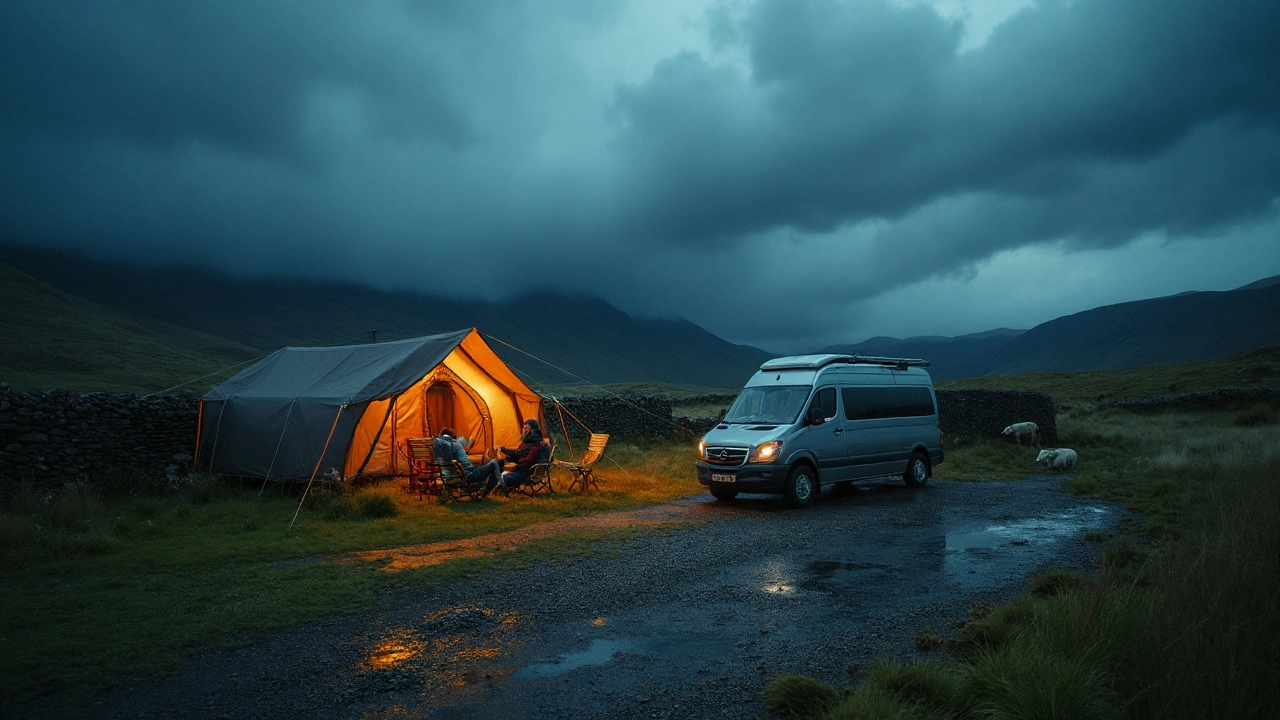
Are Campers Safer Than Tents? Risk‑by‑Risk Guide for UK Campers (2025)
Are campers safer than tents? A clear 2025 UK guide with risk-by-risk answers, trade-offs, checklists, and evidence-backed tips on CO, storms, theft, and driving.
Read MoreWhen you plan a holiday on wheels or a night under a canvas, safety is the first thing on everyone's mind. Motorhomes (campers) and tents each have their own strengths and weak spots. Below we break down the main safety factors so you can pick the right setup for you and your crew.
Campers give you solid walls, a roof, and insulated space. In rain, wind, or cold, a motorhome keeps you dry and warm with minimal effort. You just turn on the heater or close the windows. Tents, on the other hand, rely on a good tarp and a proper pitch. A sudden downpour can soak the ground and make the sleeping bag cold fast. If you camp in places with unpredictable weather, a camper usually feels safer.
But a camper also means you have a heavier vehicle on the road. Driving in icy or snowy conditions can be tricky, especially if you’re used to a smaller car. Tents let you stay on foot and avoid the need to drive in bad weather altogether, as long as you have a safe spot to set up.
Both options present fire risks, but they look different. In a camper, you have a gas stove, heater, and sometimes a wood‑burning stove. If anything leaks, carbon monoxide can build up fast inside a sealed cabin. Always install a CO detector and keep a fire extinguisher handy.
Tents usually rely on a camp stove placed a safe distance away. The main danger is a campfire that spreads to dry grass. Keep a bucket of water or sand nearby, and never leave a flame unattended. Good ventilation is easier in a tent because the fabric is breathable, but you still need to clear away smoke when cooking.
When you park a motorhome, you lock doors, close windows, and have a solid metal shell around you. It’s harder for a thief or a stray animal to get in. Tents are more exposed. A quick zip tie or a lock on your gear bag can help, but you’ll always be more vulnerable to curious wildlife or opportunistic thieves.
That said, some campers park in remote spots where help is far away. In those cases, a tent might feel safer because you can move quickly if something feels off. Always scout the area, know the nearest exit, and let someone know where you’re staying.
If an emergency pops up—like a sudden flood, a fire, or a medical issue—a motorhome can drive you out in minutes. You just grab the keys and go. Tents require you to pack up quickly, which can be stressful if you’re in a hurry.
On the flip side, a motorhome is a large vehicle that can be hard to maneuver on narrow country lanes or steep hills. Getting stuck can be dangerous if you’re far from help. A tent lets you stay on foot and often gives you more flexibility to find a safer spot.
If you travel with kids, need a stable sleeping area, or plan to camp in places with harsh weather, a camper usually offers more safety out of the box. Just remember to equip it with CO detectors, fire extinguishers, and lockable doors.
If you love freedom, want to blend into nature, or camp on a shoestring budget, a well‑chosen tent can be just as safe. Focus on solid tent setup, fire safety, and keep your gear secure.
In the end, safety comes down to preparation. No matter which you pick, read the manual, check your gear, and have a plan for emergencies. Happy camping!

Are campers safer than tents? A clear 2025 UK guide with risk-by-risk answers, trade-offs, checklists, and evidence-backed tips on CO, storms, theft, and driving.
Read More